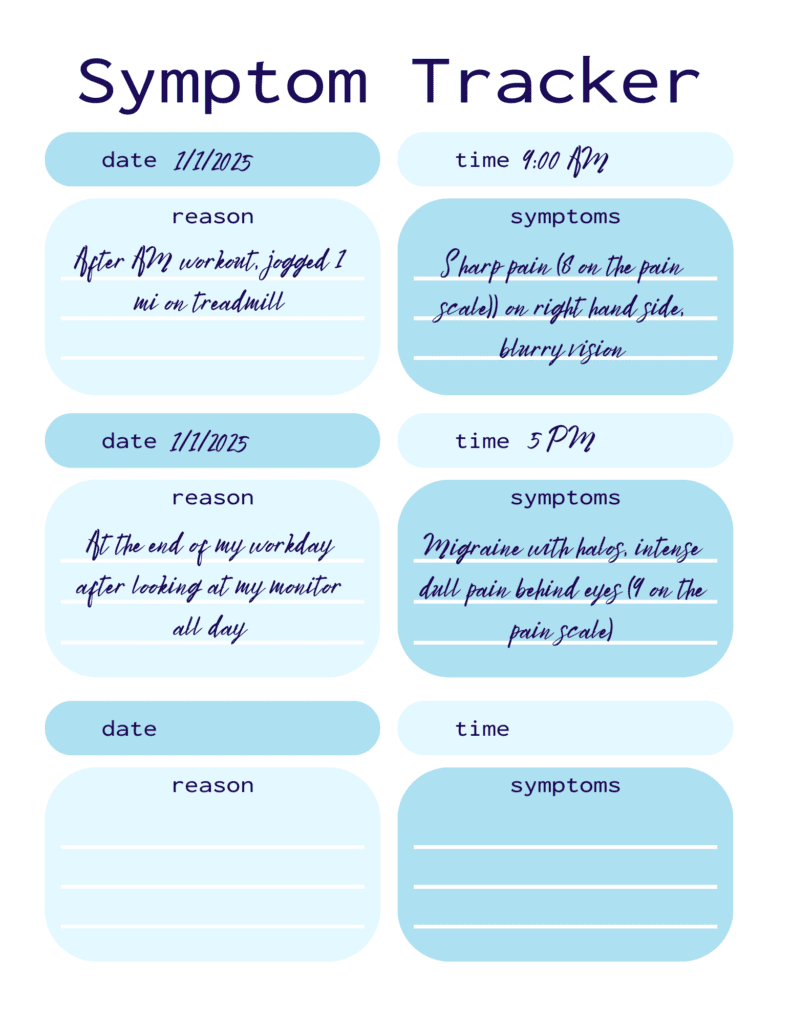5 Important Tips to Know Before Seeing a Doctor for Toxicity

You’ve been experiencing symptoms of exposure to mycotoxins or environmental pollutants like glyphosate, maybe you even have laboratory results that prove that you have an excess of these chemicals in your system – Now what?
It’s time to begin your journey towards recovery and detoxification, and being prepared before seeing a doctor for toxicity will not only help you feel better about your visit, but it’ll also help your doctor to come up with the best possible treatment plan for you.
Before You See Your Doctor
Make sure you have everything you need to feel supported at the doctor’s office by preparing in advance. Your health has been primary on your mind for a long time, but because your doctor doesn’t have the full lived experience that you have, they may not be able to grasp the scope of your condition in the window of a brief appointment. That’s why preparing to see your doctor is so important.
See the Right Practitioner
If you haven’t felt heard by your primary care practitioner, you may want to find someone who specializes in detoxification to help guide you through this process. Some patients have even experienced something called medical gaslighting, in which practitioners downplay or even deny that their patients are truly experiencing the full range of symptoms that they report experiencing.
Finding a doctor that specializes in care for exposure to mycotoxins or environmental pollutants can increase the likelihood that you will receive the treatment you need.
Make a Plan
Know what you want to talk about at your appointment and write it down. Writing everything down will help you to remember what you wanted to talk about, as it is very easy in the moment at your appointment to get carried away talking about one specific thing without touching on all your concerns. This plan should be written down somewhere easy to access for your appointment, like your Symptom Journal (see below) or a note on your cell phone.
Keep a Journal of Your Symptoms
Many patients dealing with chronic illness are already familiar with keeping symptom journals, but for those less familiar it might sound a bit strange.
Keep a daily log of your symptoms, pain, and food/medication intake. Note any time you take over-the-counter medications to deal with the symptoms you’re experiencing, like aspirin for pain. The big takeaway is that the more you can measure, the easier your time will be at the doctor.
Rate any pain you have on a numerical scale and note the type of pain experienced, where and when it was experienced, and what immediately preceded your pain. For example: 12:45 PM: Sharp pain, 7/10, on the right side of abdomen. Immediately preceded by physical activity (jogging).

We made a simple symptom tracker that can help you keep track of your symptoms and what might be triggering them. You can download a tracker page like the one above to print out below.
Note your specific symptoms, when they happen, and what you are eating and drinking as well. By keeping a detailed health log, you can help your doctor determine what to do. It may also reveal some patterns in your symptoms that you may not have noticed.
There are also lots of apps available that can help you track your symptoms and keep notes for your doctor. The Discerning You has a great guide to apps for tracking chronic illness symptoms, with pros and cons to each.
Have As Much Data As Possible
If you have performed testing to see if you have been exposed to environmental pollutants, glyphosate, or mycotoxins, be sure to bring those test results with you. As with the symptom journal discussed above, having the actual test results is another concrete piece of evidence that the doctor can use to diagnose and treat you. If you have not yet performed testing, a simple urine sample collected at home can be used to test for mycotoxins or environmental pollutants.
Having concrete numbers provides undeniable evidence that there is a cause behind your symptoms.
Bring an Advocate

If you have a hard time with speaking to medical care practitioners, whether due to past trauma, difficulties communicating, or simply not feeling heard, recruiting someone to come with you to help you articulate your needs can be very helpful.
This can be a family member or friend if you do not have a professional helper. Often, having someone external validating the concerns you bring up can help your practitioner get a fuller picture of your condition.
Practice what you plan to say, or what you want your advocate to say, ahead of your appointment. That way, if you forget something you wanted to say at your appointment in the moment, your advocate might be able to help you by chiming in.
Seeing a Doctor for Toxicity
Once you’re at the appointment with your medical practitioner, you may feel overwhelmed. Remember that you’ve prepared for this. Your Symptom Journal and plan notes will provide you with detailed topics to discuss with your doctor, and if you’ve brought an advocate with you, they can help you articulate everything that you need to say.
If you have difficulty with your doctor taking your symptoms seriously, a recent article in TIME Magazine outlines some ways to help combat that situation, though some of the advice overlaps with ours above. Know that what you are experiencing is real, and there are people who can help you. You’re not alone.
Your health and wellbeing are too important to leave entirely in someone else’s hands. By making a plan and sticking to it, you are performing the self-advocacy needed to take agency back with regards to your health.
